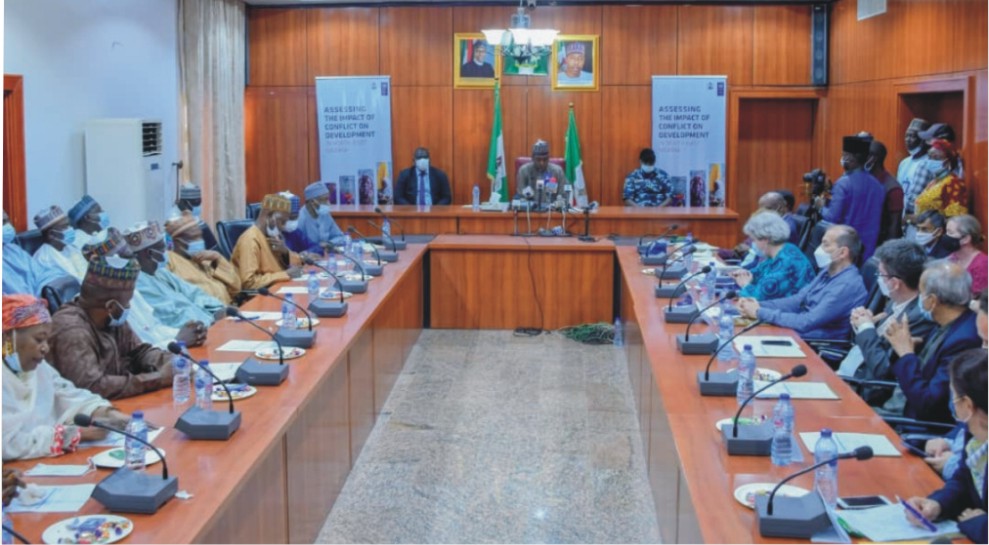Business
Adults With Bank Account Hit 45% In Nigeria – World Bank

The World Bank has said that the number of Nigerians with accounts at regulated institutions such as a bank, credit union, microfinance institution, post office, or mobile money service provider, increased by 16 to 45 per cent in 2021.
The global bank stated that global account ownership increased by 50 per cent from 51 per cent in 2011 to 76 per cent in 2021. Nigeria’s account ownership growth grew from 30 per cent to 45 per cent in the period under review.
Disclosing this in its “The Global Findex Database 2021: Financial Inclusion, Digital Payments, and Resilience in the Age of COVID-19” report, the bank said the overall account ownership in developing economies grew by 30 percentage points, from 42 per cent in 2011 to 71 per cent in 2021, which is more than 70 per cent increase.
“Individual economies saw different rates of growth over the past decade. Between 2011 and 2021, economies such as Peru, South Africa, and Uganda drove up the average with account ownership increases of 25 percentage points or more.
“Uganda, in fact, saw its rate more than triple, from 20 per cent to 66 per cent. In India, account ownership more than doubled in the past decade, from 35 per cent in 2011 to 78 per cent in 2021.
“This outcome stemmed in part from an Indian government policy launched in 2014 that leveraged biometric identification cards to boost account ownership among unbanked adults.
“Other economies saw much smaller increases over longer periods. Pakistan, for example, grew by just 10 percentage points over the past decade, from 10 per cent in 2011 to 21 per cent in 2021.
“The Arab Republic of Egypt and Nigeria increased ownership by 18 percentage points and 16 percentage points, respectively – from 10 per cent to 27 per cent in Egypt, and from 30 per cent to 45 per cent in Nigeria”, the report stated.
The Washington-based lender explained that account ownership is a fundamental measure of financial inclusion and is the gateway that allows men and women to use financial services in a way that facilitates development.
It said owners of accounts – whether those accounts are with a bank or regulated institution such as a credit union, microfinance institution, or mobile money service provider – were able to store, send, and receive money, enabling them to invest in health, education, and businesses.
According to the lender, it is harder for account holders to slide into poverty because they can easily rely on savings or receive financial resources from friends or family in the event of a financial emergency.
Business
NCDMB, Jake Riley Empower 250 Youths On Vocational Skills

Business
NUJ Partners RSIRS On New Tax Law Education

Transport
Nigeria Rates 7th For Visa Application To France —–Schengen Visa

-

 Sports1 day ago
Sports1 day agoArsenal Women End Man City’s Invincibility
-

 Sports1 day ago
Sports1 day agoU-20 WWC: Falconets claim qualifier win
-

 Sports1 day ago
Sports1 day agoInsurance Deepen Enyimba’s Trouble
-

 Sports1 day ago
Sports1 day agoYouth Olympics preparation Gears up
-

 Environment1 day ago
Environment1 day agoRivers State Government Suspend Fire Service Collection Levies
-

 Sports1 day ago
Sports1 day agoTornadoes Set For NPFL exit over Stadium Ban
-

 Sports1 day ago
Sports1 day agoCologne Youth Team Set Crowd Record
-

 Environment1 day ago
Environment1 day agoLASEMA pushes attitudinal change to cut fire outbreaks in Lagos

